The motorbike weaves in and out of traffic and the sun scorches down on the crack-ridden tarmac. We’re on our way to Ibirité, a city in the state of Minas Gerais, Brazil. Groups of underground hip hop artists have come together with an NGO called Central Única das Favelas (CUFA) to host Promove Gueto in Morada da Serra, a poor neighbourhood in the city.
CUFA was officially formed in 1999 as a union between youth groups of various favelas in Rio de Janeiro, who sought to express themselves through music and art. They’re all about building identity and earning respect, with rap and hip-hop a major influence from the get go.
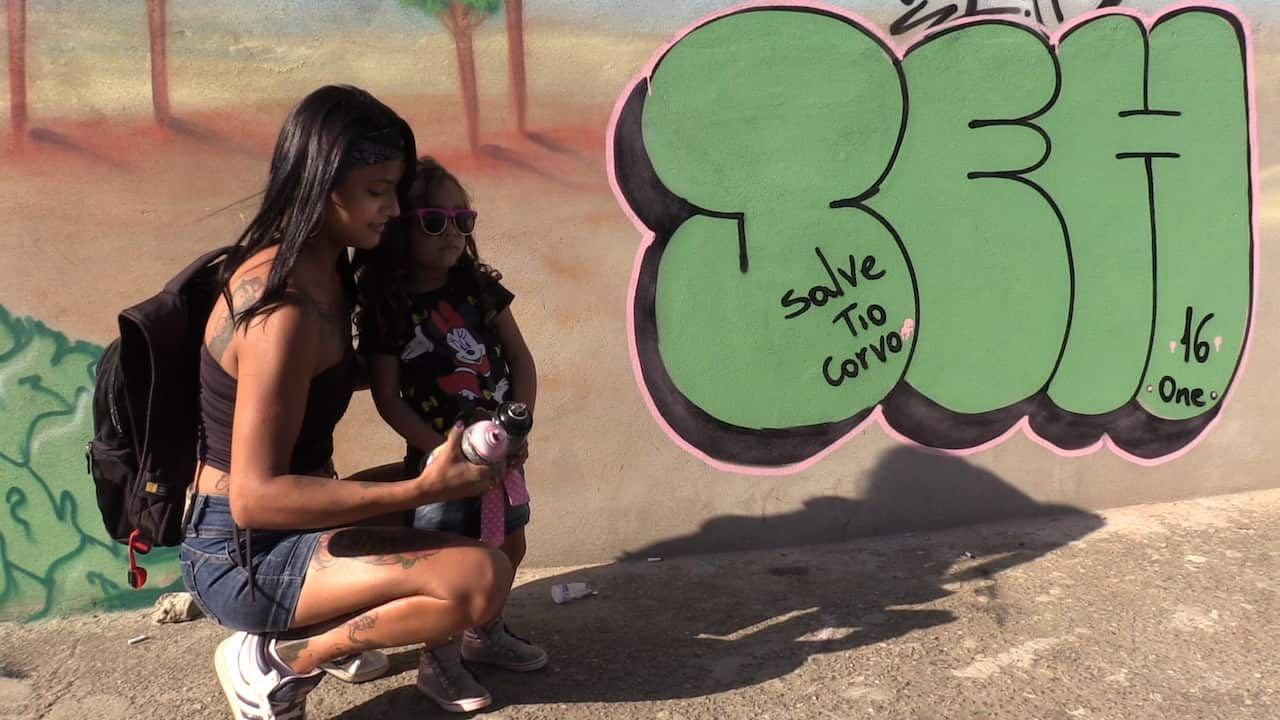
We turn off the highway into noisy traffic, passing through bustling weekend markets and morning activity. Parked cars blast out music, children boot around footballs and men stand on street corners smoking corn straw tobacco. Francis revs his Honda 250 around a corner and the smell of onion spice is left behind.
The bike throttles up several hills and we park on the corner of a wide, dusty street that shoots in to the centre of Morada da Serra. The back of a large metal-rigged stage stretches across the road, and the heavy beats of old-school rap pump out into the air.
We pass by graffiti artists tagging up the walls and spill out onto the sun-splashed street in front of us. There are dozens of children set up on plastic chairs strewn across the road and a DJ on the stage spins tracks from his two-disk set up. Barbeiros do Brasil, a group of young barbers, are giving out haircuts for free and have serious skills with the razor.
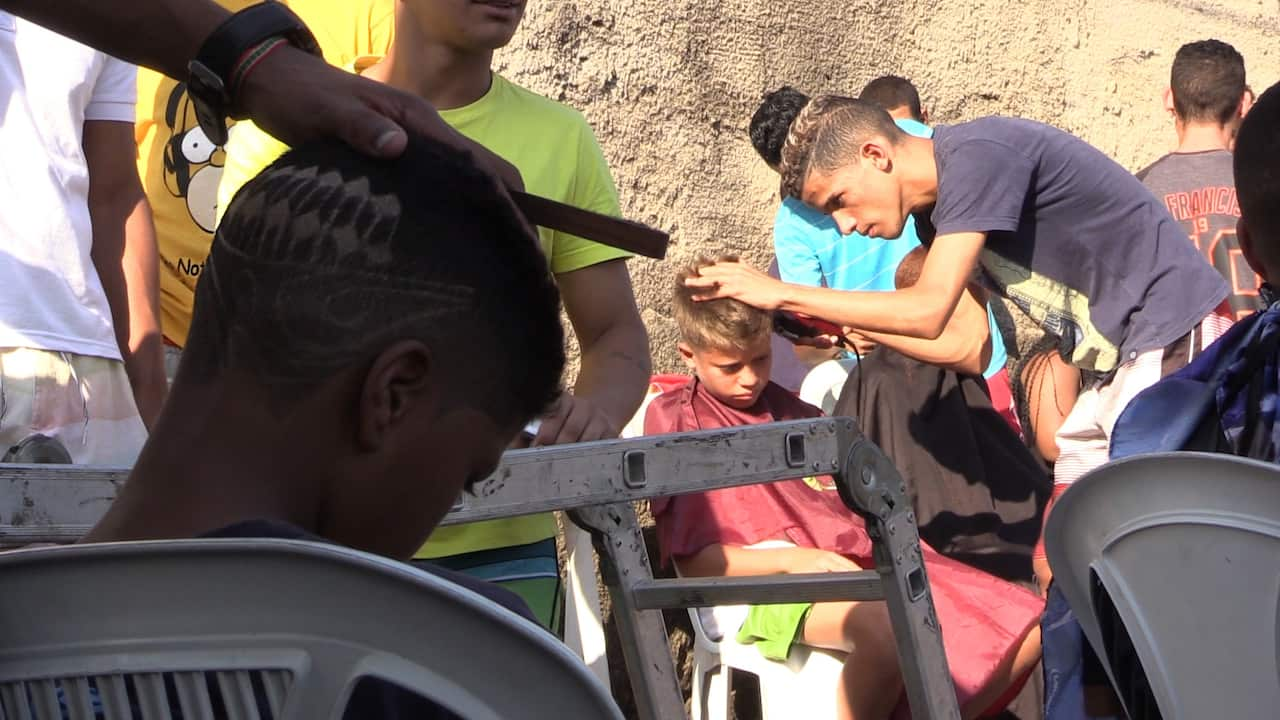
Devu, from rap group Imperio dos Guerreiros, takes me for a walk through the community and explains the importance of having cultural and social interaction in the poorer areas of Brazil.
"Politicians have the power in their hands to make a difference and they simply don’t do it," he says. "We want to show them how we can change our community with the little resources that we have."
Equipe Barbeiros do Brasil, Devu explains, is an organisation that has taken in many young boys who were otherwise heading towards a life of crime. It has taught them a new trade and given them a platform to express their creativity.
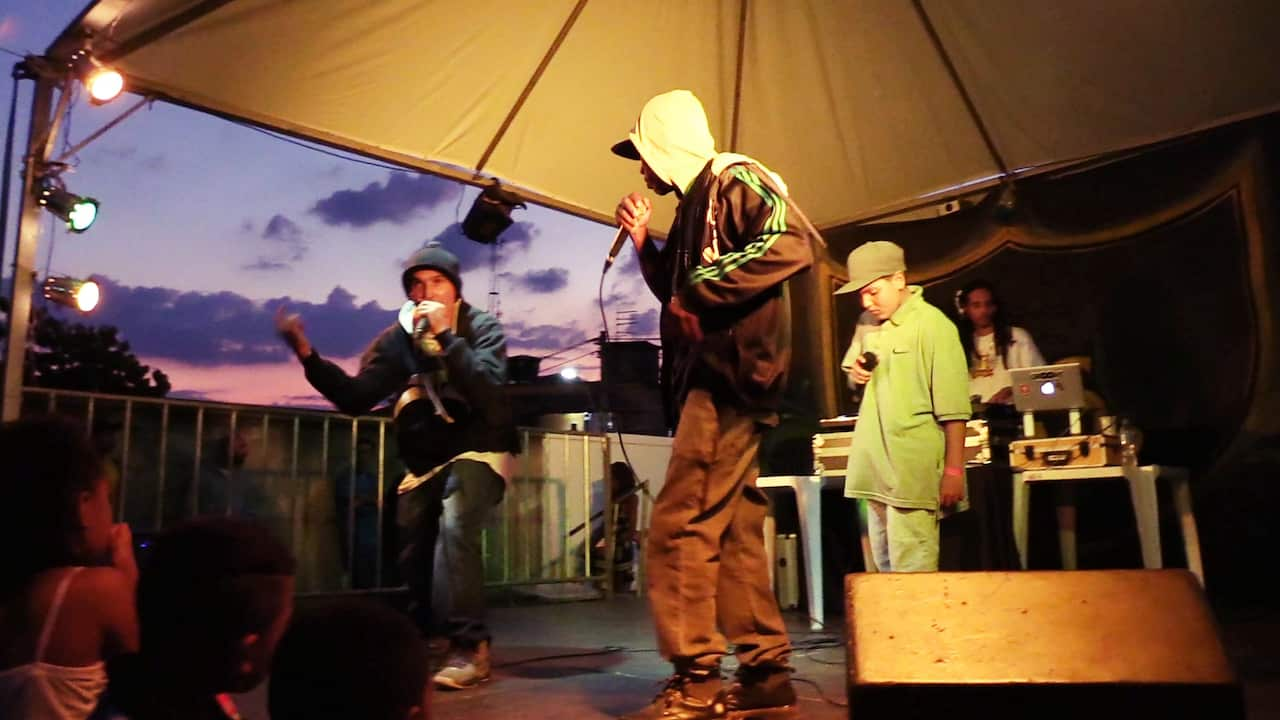
On the way back to the main stage, we pass by a rowdy match of street ball. A group called Thug Life are playing a one-hoop game and kids sit back in awe as the heavily built men twist and thump past one another, shooting hoops and kicking up dust.
I meet a rapper on the street called Nago, who talks about the struggles in the ghettos for those of colour.
"I represent the black movement defending our cause here in Brazil, where racism, unfortunately, still exists," he says. "Through hip hop we try to bring the message that everybody is equal and we can achieve whatever we want if we put our mind to it."
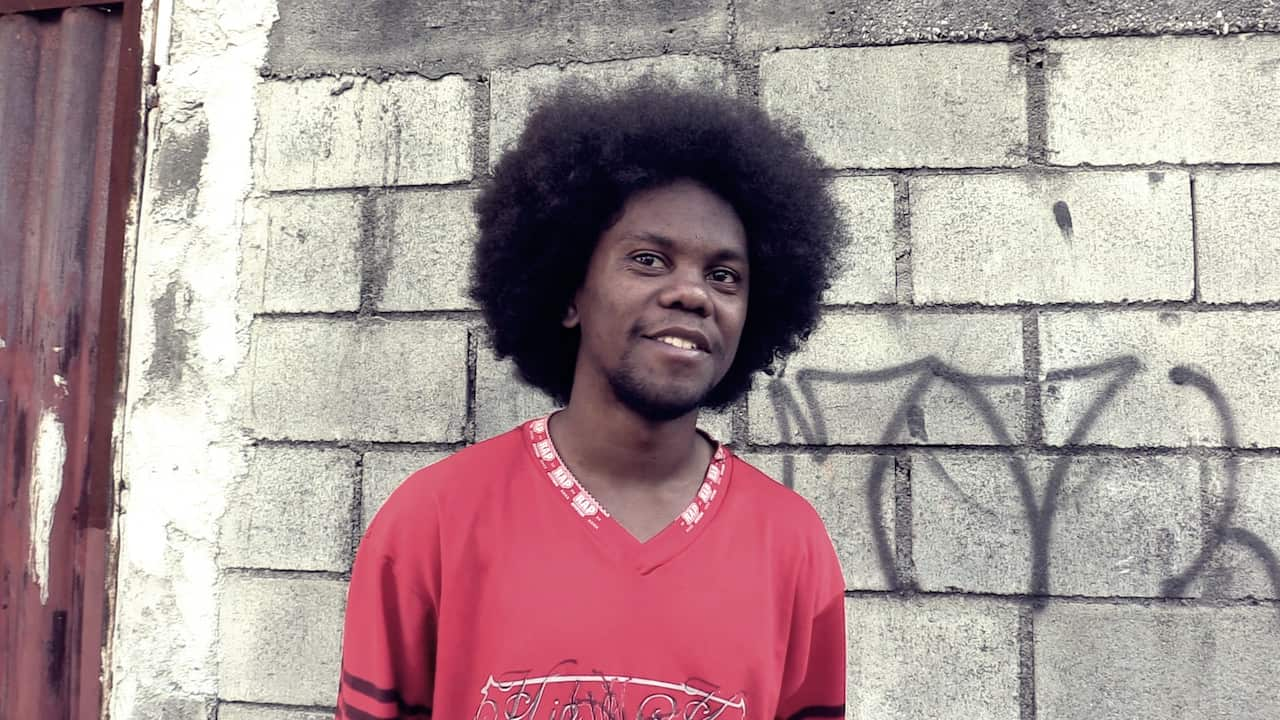
As the sun starts setting, plastic chairs are removed and people fill up the street. Hip hop artists take to the stage and the music is turned up a little. For a brief moment, my heart sinks as I realise I’ve been without my camera tripod for a few hours; when I see it sitting on top of a table exactly where I had left it, I feel ashamed for assuming someone had taken it.
After a few sets, I head to a hairdressing salon on the corner of the main street, which has turned into a makeshift backstage. I duck under the metal sliding door and introduce myself to Negra Lud, a female rapper who has been in the game for 15 years.
"A lot of the work I do here addresses women’s self-esteem and our representation in the hip hop movement," she says. "I do this to promote change and revolution for women in Brazil, hip-hop gives me that voice."
I meet more artists prepping backstage whose desire for change is unmistakable. EF Arezona, who has lived in the community for more than 30 years, tells me rap is a way out for his people and that it sends a powerful message to the ghettos and encourages those who are struggling in life to take up music.
"Rap in Brazil is a revolution, it’s no joke," exclaims a guy called Felipe, "It’s romantic poetry. A protest for you, a protest for everyone.”
I head back through the crowd and perch myself ten feet behind the action to watch EF Arezona finish up the festivities. There’s a van set up that’s been selling drinks all day and I ask for a cup of Catuaba, a beverage made from the extracts of a plant found in the Amazon jungle. After sorting through my Brazilian shrapnel I realise that I’m just short, and move to put the money away. The man serving me smiles and places his hand on my arm, taking what I have and giving me a cup anyway.
I feel a gush of warmth toward the people of this community, who throughout the day welcomed me into their friendship groups, allowed me to openly film the event and treated me with respect.
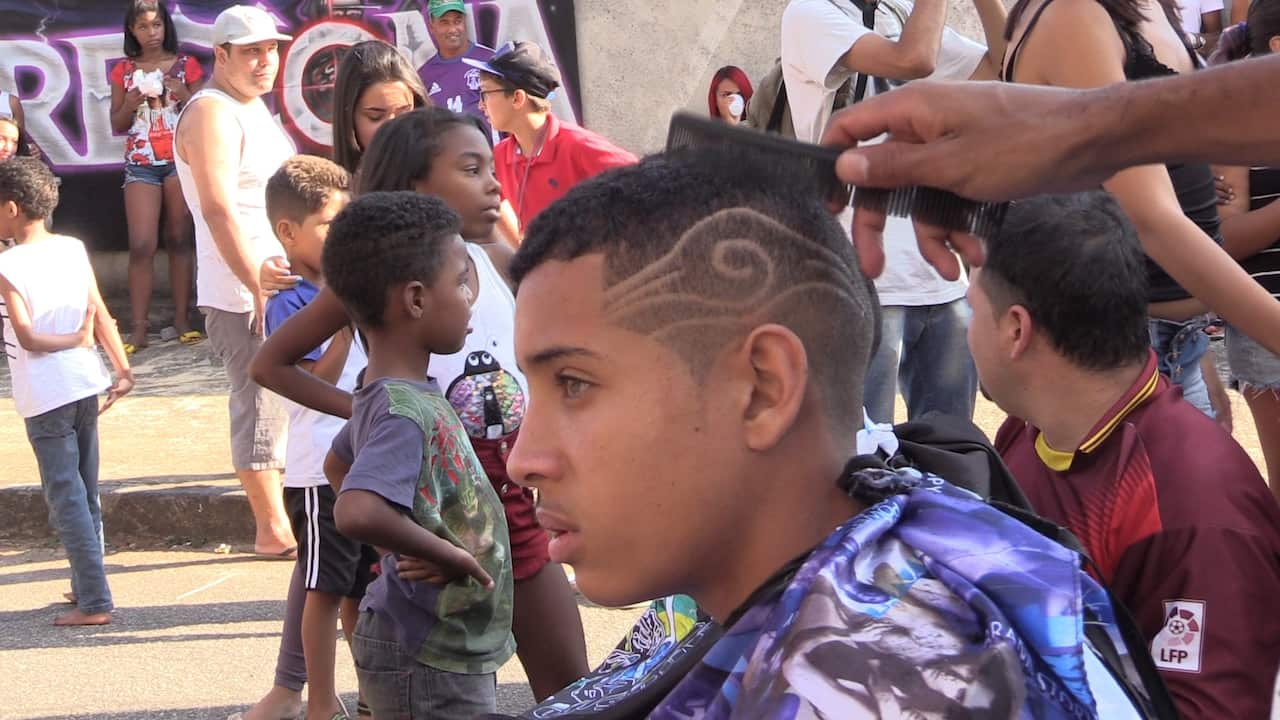
I spy a young boy slung across his mother’s shoulders, staring toward me with inquisitive eyes. I wink at him and say hello, striking up a conversation with the father. They too, live in the area, and have walked here to catch the main show. We talk about violence in Brazil and the message that social events like these bring to those who struggle. Years ago, he tells me, his brother was shot dead on this very street for mixing with the wrong crowd.
I’m not quite sure how to respond to this information, so I just mumble "I’m sorry" and for a brief second the father is lost in his own thoughts. His wife smiles at me and motions towards the stage. Their community is stronger now than ever, she explains to me, and their son has plenty of role models to look up to.
Elliot Constable is a freelance journalist currently based in Brazil. Follow him on Twitter and Instagram.

